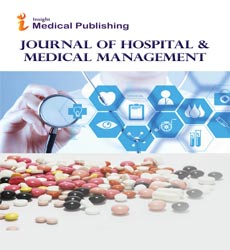Analysis of the Effectiveness of Selfmanagement in the Community
Sonia Cottom
DOI10.4172/2471-9781.100014
Sonia Cottom
Pain Association Scotland, UK
- *Corresponding Author:
- Sonia Cottom
Director, Pain Association Scotland
Suite D, Moncrieffe Business Centre
Friarton Road, Perth, UK
Tel: 01738 629503
E-mail: SCottom@painassociation.com
Received Date: September 24, 2016; Accepted Date: September 25, 2016; Published Date: September 26, 2016
Citation: Cottom S. Analysis of the Effectiveness of Self-management in the Community. J Hosp Med Manage. 2016, 2:1.
Abstract
Pain Association Scotland aims to improve the quality of life for chronic pain sufferers by supporting and empowering them to live independently in the community. Its’ main focus is to help the significant numbers of people (18.1% of the adult population of Scotland are burdened with chronic pain). For 26 years, the Association has designed, trialled, developed and delivered a unique two strand community based self-management service for sufferers of Chronic Pain.
Pain Association Scotland aims to improve the quality of life for chronic pain sufferers by supporting and empowering them to live independently in the community. Its’ main focus is to help the significant numbers of people (18.1% of the adult population of Scotland are burdened with chronic pain). For 26 years, the Association has designed, trialled, developed and delivered a unique two strand community based self-management service for sufferers of Chronic Pain.
• Strand one offers a rolling programme of training, education, skills maintenance and support through a network of 32 staff led self-management groups.
• Strand two offers an intensive 24 hour self-management course delivered in collaboration with NHS chronic pain services for their patients and additionally for users of our service who have not come through the clinical route.
Our unique staff-led model programme is delivered by two members of staff with combined experienced of 23 years working in the field of Chronic Pain.
Our model of service delivery has been developed over many years in collaboration with the users of our service and through collaborative working with the respective 10 NHS Boards, the Scottish Government and the Scottish Chronic Pain Service Improvement Group. The aim is to provide education and empower sufferers to build self-management skills and use these, thereby creating practical, positive change leading to an improved quality of life and well-being.
There is compelling evidence that a service of this nature remains important to a substantial number of people.
• 1 in 5 people in Scotland suffer chronic pain, and 1 in 20 suffer severe, disabling chronic pain.
• People with chronic pain use primary care services 5 times more frequently than those without.
• Analgesic prescribing rates and costs are rising dramatically: strong opioids have doubled in 10 years, tramadol has trebled, and gabapentin has increased six-fold in 15 years.
• People with chronic pain have poor physical, psychological and social health, die earlier and are less likely to be able to work than those without.
Open Access Journals
- Aquaculture & Veterinary Science
- Chemistry & Chemical Sciences
- Clinical Sciences
- Engineering
- General Science
- Genetics & Molecular Biology
- Health Care & Nursing
- Immunology & Microbiology
- Materials Science
- Mathematics & Physics
- Medical Sciences
- Neurology & Psychiatry
- Oncology & Cancer Science
- Pharmaceutical Sciences
